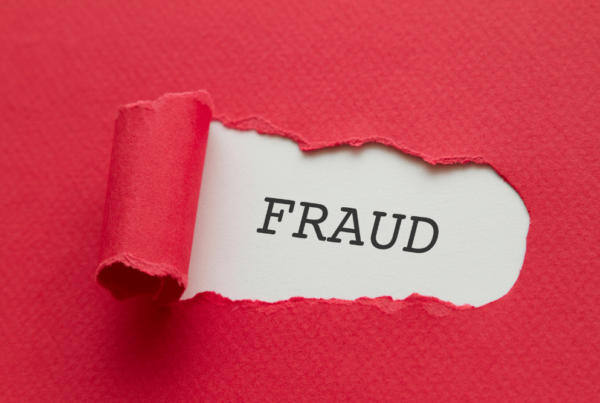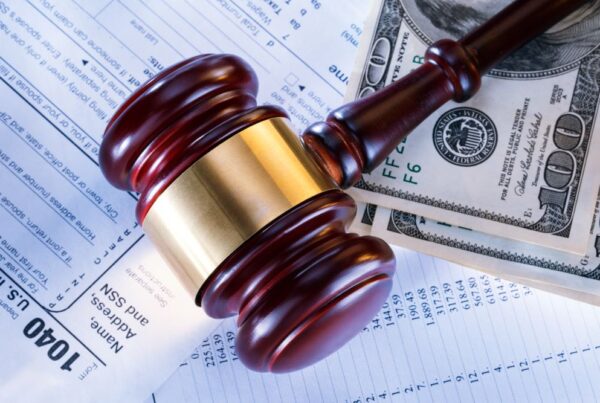WHITE COLLAR CRIMES
Mortgage Fraud Defense Attorney
Mortgage Loan Fraud Definition, Sentencing, & Penalties
What is Mortgage Loan Fraud?
In tandem with the subprime mortgage crisis that began in 2007, losses that resulted from mortgage fraud increased substantially throughout the U.S. According to the Federal Bureau of Investigation, mortgage fraud accounted for over $1.4 billion in losses in 2008, an 83.4 percent hike from 2007. This alarming trend continued. The losses reported in the first half of fiscal year (FY) 2009 surpassed those from the same period in FY 2008 by over $200 million. Although the exact amounts of loss remained unknown, the devastating effects were unmistakable. With the housing and financial markets facing collapse, individual and institutional victims called for a strong response from prosecutors and the Department of Justice readily stepped in.
According to the United States Sentencing Commission, of the more than 5,700 cases involving charges of theft, property destruction and fraud in FY 2019, 2% involved mortgage fraud offenses. While this represents a decrease in the number of mortgage loan fraud offenders since FY 2015, the median loss for such offenses remains the same—over $1.25 million. Although mortgage fraud offenders come from all regions of the country, the top two districts for mortgage fraud offenders in FY 2019 were the Northern District of Illinois and the Eastern District of California, respectively. Even more diverse are the types of mortgage fraud with which offenders are charged.
Types of Mortgage Fraud
Following the collapse of the housing market the FBI has widened the scope of actions that constitute mortgage fraud offenses. All such offenses fall into one of two broad categories of mortgage fraud—fraud for profit and fraud for housing.
Fraud for Profit
Fraud for profit schemes are designed to manipulate the mortgage lending process to siphon cash and equity from mortgage lenders and homeowners. Offenders are typically financial industry insiders who exploit their unique knowledge, skill and positions to commit or promote fraud. For profit offenders can include home appraisers, loan officers, bank officers, attorneys and other industry professionals.
Some of the more common fraud for profit schemes are marketed as foreclosure rescue programs, where alleged offenders identify homeowners facing foreclosure and offer to save them by enticing the homeowners to transfer their deed to a third-party investor. The investor, in turn, promises to take over the homeowner’s mortgage, sparing them from foreclosure. With deed in hand, perpetrators create false equity using a fraudulent appraisal and then sell the property at an inflated price. During this process homeowners often pay the perpetrators rent to remain in their home. Perpetrators typically fail to make mortgage payments, ultimately walking away with seller proceeds and any rent or fees paid by the homeowner, while the property eventually ends up in foreclosure.
Fraud for Housing
Fraud for housing involves a mortgage loan borrower as the usual perpetrator. Fraud for housing schemes typically involve the misrepresentation of income and assets to acquire financing to obtain or maintain home ownership.
A common fraud for housing schemes is called the silent second. In this scheme a buyer borrows the down payment from the seller in the form of an undisclosed second mortgage, which is often not recorded to conceal it from the primary lender who believes the buyer has put up his own money as the down payment.
A vast array of mortgage schemes exist and new variations emerge as the DOJ continues to crack down on offenders.
Under Which Statutes are Mortgage Fraud Offenders Charged?
Under federal law, there is no particular statute targeting mortgage fraud offenses. This hardly leaves prosecutors at a disadvantage. They simply draw upon an arsenal of long-standing fraud statutes that afford the government the versatility to adapt to various, often complex, mortgage fraud schemes. Depending on the nature of the offense, alleged offenders may be charged with a number of different statutes, or a combination thereof.
Mail fraud, 18 U.S.C. §1341, and wire fraud, 18 U.S.C. §1343, are two of the more expansive statutes criminalizing a constellation of fraudulent acts. If the alleged victim is a financial institution as defined by 18 U.S.C. §20, alleged offenders may be charged under the bank fraud statute, 18 U.S.C. §1344. The Fraud Enforcement and Recovery Act of 2009 (FERA) expanded the definition of ‘financial institution’ by adding mortgage lending businesses to the pre-2009 list of traditional FDIC-insured entities. Similarly, 18 U.S.C. §1014 criminalizes false statements to a financial institution. Offenders who transport fraudulently obtained funds across state lines may face charges under 18 U.S.C. §2314. These are merely a few of the statutes at the government’s disposal.
Mortgage Fraud Penalty
Defendants charged with mortgage fraud face a range of potential penalties depending on the particular statute(s) under which they are charged. The mail fraud (§1341) and wire fraud (§1343) statutes carry a penalty of up to 20 years in prison and fines up to $250,000, or both. Bank fraud (§1344) and making false statements to a financial institution (§1014) carry more severe penalties with defendants facing up to a 30-year prison sentence. §2314, in contrast, carries a relatively lighter sentence of up to 10 years in prison.
Certain factors may mitigate (reduce) or enhance (increase) a defendant’s penalty. For example, defendants who target persons over fifty-five through telemarketing or email marketing face an additional 10 years in prison. Other enhancing factors include the number of and the extent of harm to victims, using sophisticated means to execute or conceal the offense and performing a leadership or supervisory role in the offense. Contrastingly, minimal participation in the offense may be a mitigating factor.
Mortgage Fraud in the News
On July 16, 2018, Dorothy, Jamie and Thomas Matsuba were sentenced to 240, 135 and 168 months in prison for their involvement in a foreclosure rescue scheme in Los Angeles, California, respectively. The Matsubas defrauded financially distressed homeowners, promising to save them from foreclosure through short sales of their homes. Instead, they rented the homes to third parties, made no mortgage payments on the properties, and submitted fraudulent documents to forestall foreclosure. The Matsubas also used homeowners’ personal information to obtain mortgages and file bankruptcy in the names of homeowners without their knowledge.
Consequently, they were convicted of various counts including conspiracy to commit wire fraud, making false statements to a federally insured bank or mortgage lending business, identity theft, as well as multiple counts each of wire fraud and aggravated identity theft.
In cooperation with the FBI and other federal agencies, state and local agencies, the DOJ continues to target offenders such as the Matsubas in their ongoing campaign to identify and prosecute mortgage fraud offenders. Contact us if you are in need of an experienced mortgage fraud defense attorney.
Contact an Experienced Mortgage Fraud Defense Attorney Today
White Collar Crimes
Recent Posts






